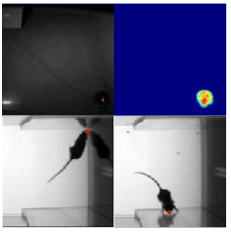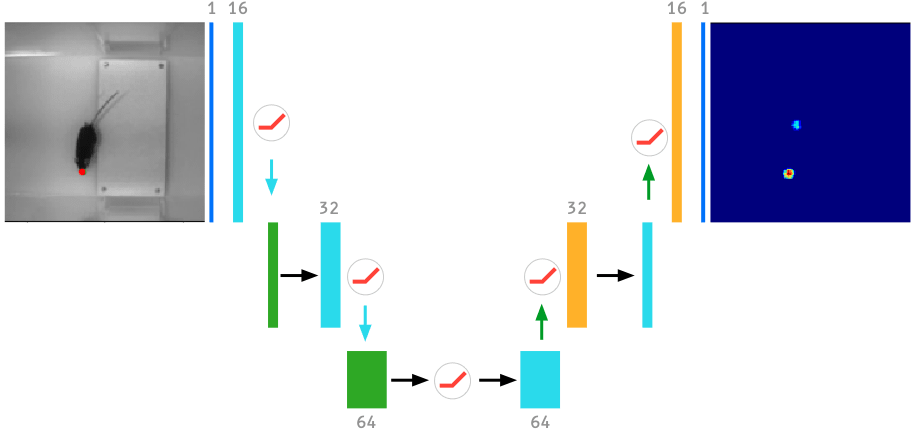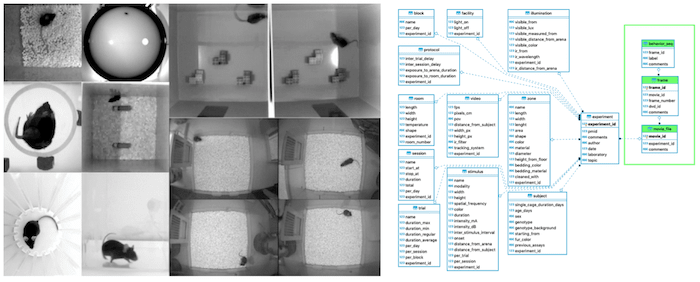
The Neuro-Behavioral Analysis Unit is an internal platform of the Department of Fundamental Neurosciences @ UNIL


Pixel-based segmentation overcomes many of the problems faced by model-based subject recognition systems.
We develop artificial neural networks to detect the subject (or parts of the subject) in the image whenever other solutions fail to achieve the quality and precision required by the experimental design.
Artificial neural networks - in particular fully convolutional neural network- are exceptionally well suited to deal with challenging situations (i.e. they do not get fooled by reflections or weird subject orientations).
Despite the variability observed across different videos, the images (i.e. video frames) acquired in a laboratory setting are highly redundant. For this reason, even relatively shallow architectures achieve astounding performances when trained on small data-sets.


Our platform has access to a vast database of video frames captured during the execution of a large cohort of behavioral assays
Every video (and video-frame) is structured inside a relational database linked to the detailed experimental conditions in which the videos were acquired.
The database is used to rapidly extract heterogeneous data-sets necessary to train, validate, and test our artificial neural networks.